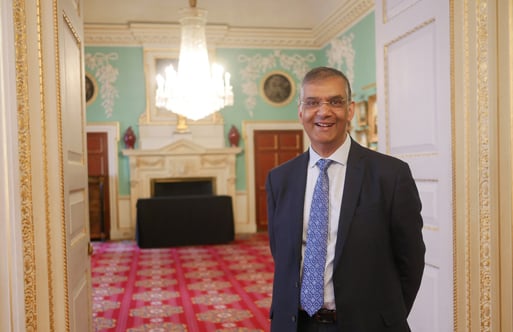As motorways cleared and factories closed due to coronavirus, many countries experienced temporary falls in harmful emissions and an improvement in air quality. However, lockdown will end and the power plants will be back up and running at full capacity soon enough.
Even though the opportunities for huge progress in this area - such as the 2020 UN Climate Change Conference - have now been postponed, I still hold out a great deal of hope for humanity’s chances in repairing our planet, post-lockdown. And the main reason for that hope? The incredible applications of artificial intelligence (AI) and machine learning (ML) in education, analysis, preparedness and every other conceivable facet of the environmental action.
How to catch a polluter
Those closely involved in the climate change struggle will tell you how difficult it is to locate individual culprits. The primary reason for this, is because climate change is the result of all of humanity’s collective actions – but it is also because carrying out the levels of inspection needed to ensure all powerplants worldwide are not polluting to illegal levels, in an unfeasibly huge task.
For this latter reason, AI is ready with a solution. The independent think tank, Carbon Tracker, has developed an ML-based algorithmic image analyser, which has the potential to bring about total transparency in the climate change debate - ensuring no polluter goes unnoticed or unashamed.
AI’s greatest strength is its ability to review inhuman amounts of data and identify trends at stupefying speeds. In doing so, depending on the type of data inputted, it can actually get progressively better at identifying such trends.
In this instance, Carbon Tracker fed their AI visual satellite imagery of powerplants, combined with the recorded levels of pollution emitted at the time of the images being taken. From repeating this unassuming process over and over, they have now developed a tool that is able to measure the levels of pollution from individual smokestacks from space.
If you previously had suspected an organisation of egregiously ignoring environmental protection laws in another nation, you would have had to instigate an immense international effort to hold those guilty to account. With Carbon Tracker’s efforts, though, the same can be done with minimal physical presence.
A recently gifted grant from Google will undoubtedly help in their efforts to perfect their processes and, eventually, release it to the world - greatly improving the toolsets at the disposal of global activists.
Weathering the storm
The most destructive, imminent way we will experience climate change in our lives, is through the extreme weather facilitated by changes to the atmosphere. Scientists have been recording natural data (wind speeds, atmospheric pressure, etc) for decades, but with such large amounts of information available, it is incredibly difficult to observe any quantifiable pattern or trend outside of the general curve.
Again, AI presents a valuable solution. Researchers from the Montreal Institute for Learning Algorithms, Conscient AI and Microsoft are reportedly working on an AI that can simulate natural disasters in cities right down to individual streets.
Being able to extrapolate weather insights, from live natural data, gives emergency services an idea of how best to prepare for the most likely scenarios; as well as giving city planners an incentive to implement more stringent safety measures, given that they can now see how designs would hold out in a freak hurricane or other natural event.
These two examples may only represent small groups of researchers making their own AI-powered toolsets, but it is these kinds of achievements that will best equip us in fighting climate change throughout this decade.
Although the timetable has changed in the wake of the coronavirus pandemic, there is a key opportunity for political leaders to set strong goals and highlight the importance of safeguarding not only public health, but also the health of our planet. And with AI by our side, I am positive that we will be able to reduce - if not reverse - the adverse impact of climate change.

















